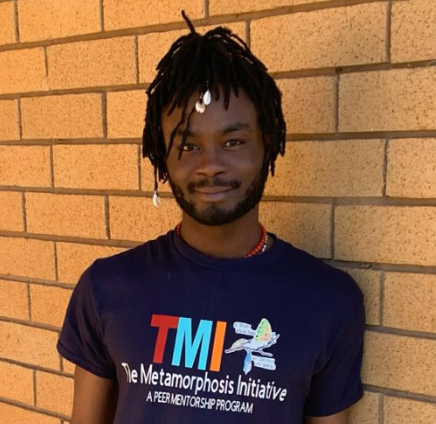What comes to mind when you hear the phrase young father? Now combine that with a young father in foster care. Some people have perceptions that young fathers in care do not want to be a part of their child’s life, or that they are irresponsible in making decisions for themselves and their families. Young fathers are often seen for their weaknesses and not their strengths. Deficit-based approaches do not help in framing the conversation on how we can best support young fathers in or transitioning out of care. As a young father with lived experience in care, I can say that young fathers would love to be more involved in their children’s lives with the proper supports set in place to help them do so. Often in the child welfare system, young fathers tend to be overlooked. I have a few recommendations for changing the narrative of young fathers in care and creating better supports.
1. Collect data on young fathers in care. It is hard to gauge the strengths of young fathers and identify their needs if there is not enough information collected on the population. We can be more intentional and build better programs and services with young fathers in mind once we have data representative of the population. According to research, “Existing research on fathers in foster care is limited by underreporting, service engagement issues, lack of meaningful engagement data, and very little information on fathers’ involvement with their children…While there have been over 60 studies and three reviews on expectant and parenting foster youth spanning roughly 30 years, the articles have primarily focused on empirical findings relating to mothers in foster care.”
2. Share power and amplify the voices of young fathers. Young fathers should be invited to the table when creating policies and programs that they will be directly impacted by. Young fathers have firsthand experience in the systems that they are involved in and have ideas of how to improve those systems.
3. Create opportunities for former foster young fathers to mentor current young fathers in care. Young fathers need support systems, and it is helpful for them to have spaces where they can connect with others with similar experiences.
4. Provide resources for co-parenting. Whether parents remain together or not, we should encourage them to build healthy relationships to help their children thrive. Family counseling and therapy can help young parents communicate better and resolve conflict healthily. Young parents, including fathers, can experience trauma from being involved with the child welfare system and need support while healing.
Sando Zou-Capuzzi is an advocate from Georgia and a young parent leader for the Youth Power, Parent Power initiative. The Youth Power, Parent Power initiative partners with expectant and parenting youth to transform standards of care across public systems and communities so that they can succeed and thrive. Sando is also a co-founder of The Metamorphosis Initiative, a peer mentoring program founded by youth with lived experience in foster care in support of youth in care. Sando is passionate about the rights of young fathers in foster care and advocates for the inclusivity of fathers when rallying for systems-level change so that all children, youth, and families can thrive. In addition, Sando believes it is crucial to provide education and workforce opportunities to young parents to help them explore careers and gain financial security to care for themselves and their families. Sando is an alumnus of Year Up, a job training program, and he is currently earning his associate’s degree in Cybersecurity.
